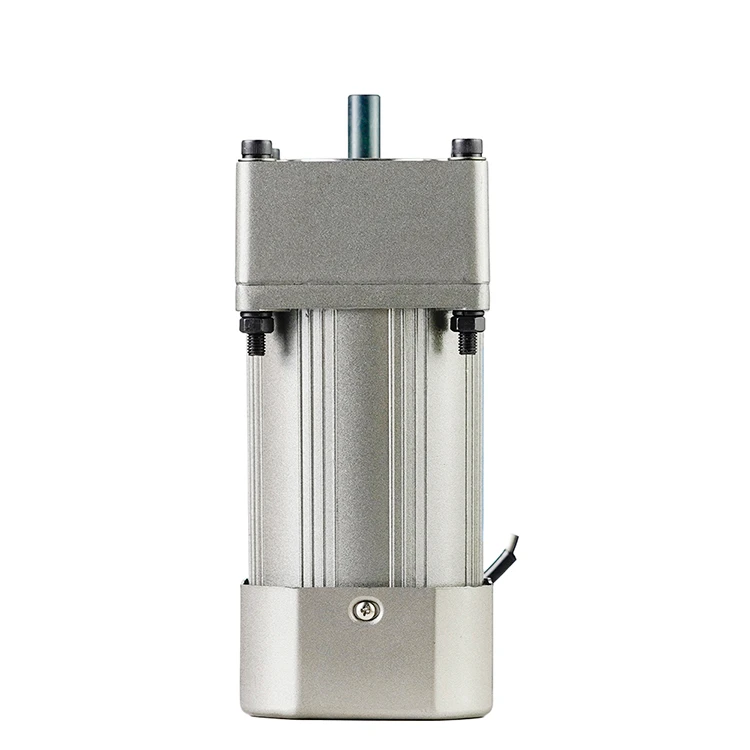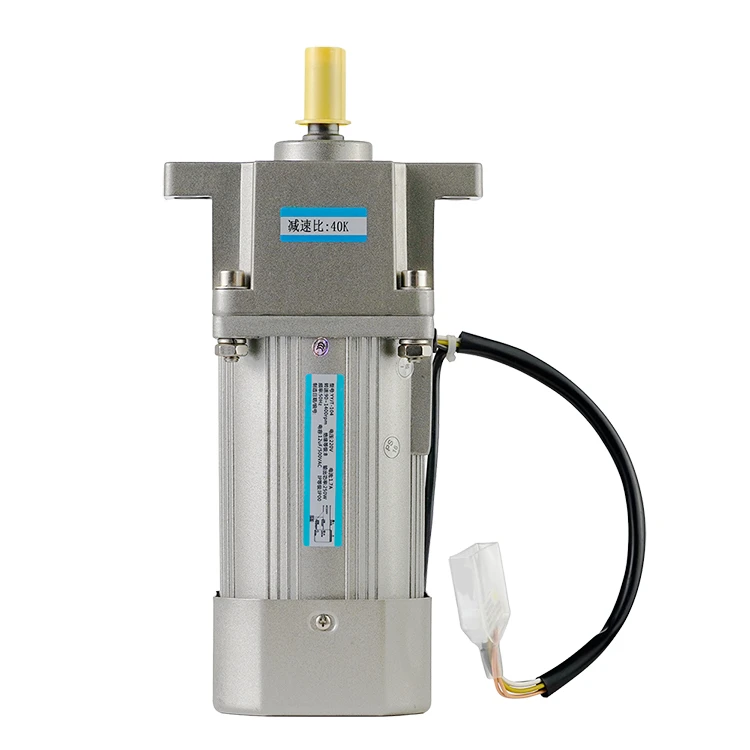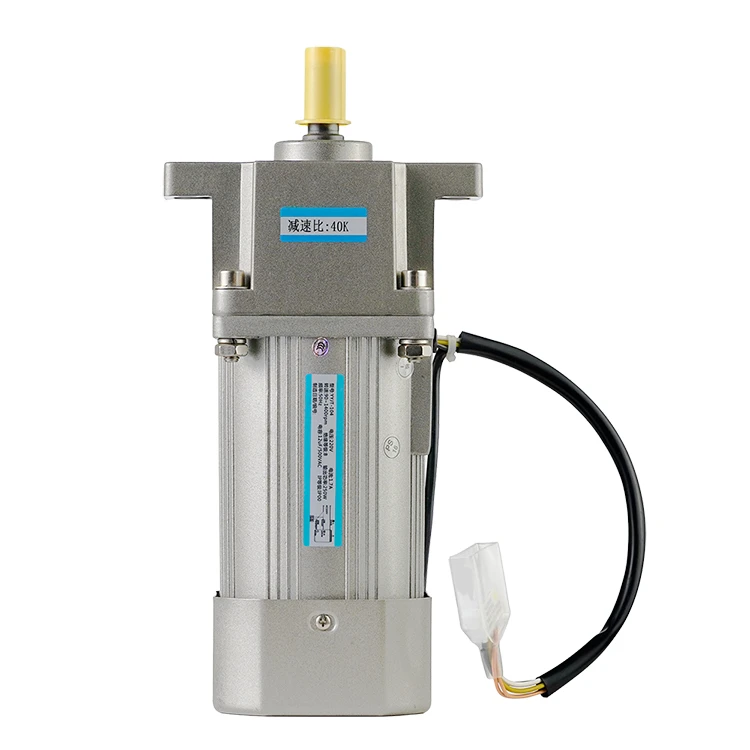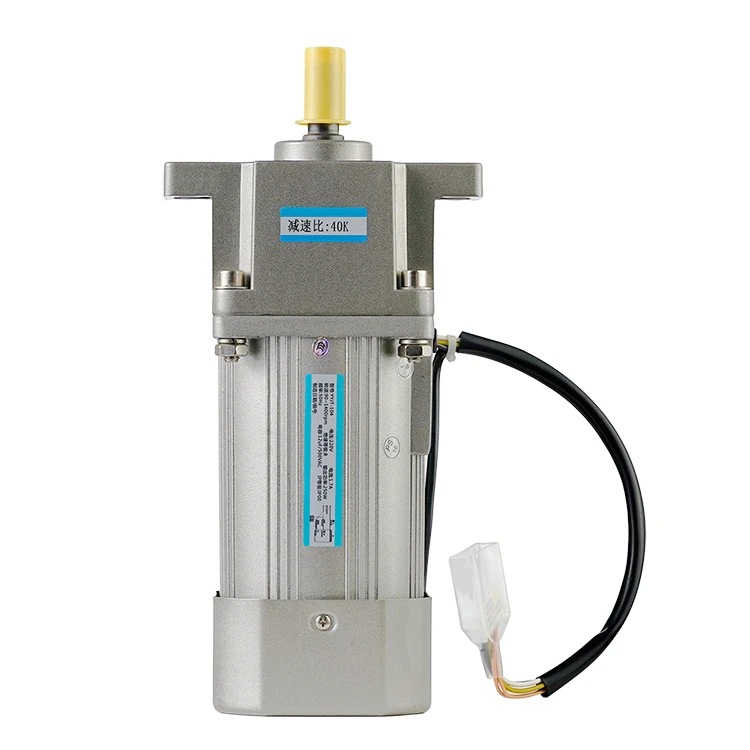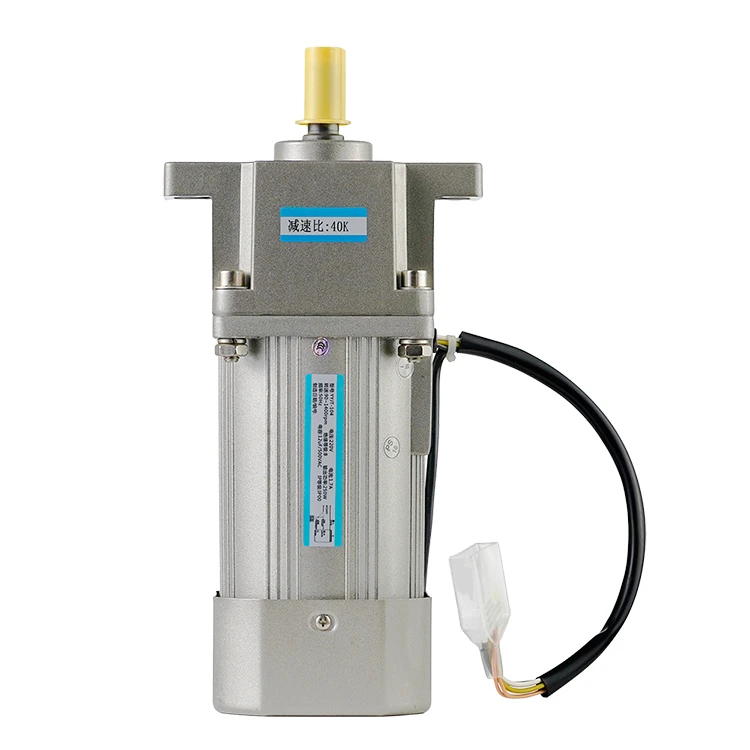How Fast Can Servo Motors Spin?
2023-12-27 09:27:59
1. Speed of Servo Motors: An Overview
Servo motors are widely used in various industries for their precise control and positioning capabilities. When considering the speed of servo motors, it's important to understand how it is measured and what factors influence it.
The speed of a servo motor is typically measured in terms of revolutions per minute (RPM). This refers to the number of times the motor shaft rotates in one minute. The speed can vary depending on the specific servo motor model and its intended application.
Several factors can influence the speed of a servo motor. These factors include:
-
Power supply voltage: The voltage supplied to the motor affects its rotational speed. Higher voltages can result in faster speeds, but it is essential to stay within the motor's voltage rating to prevent damage.
-
Load: The load placed on the servo motor can affect its speed. Heavier loads may result in slower rotations, as the motor needs to exert more force to overcome the resistance.
-
Control signal: The control signal sent to the servo motor plays a crucial role in determining its speed. By adjusting the pulse width modulation (PWM) signal, the motor's speed can be controlled.
2. Typical Speed Range of Servo Motors
The speed capabilities of servo motors can vary depending on their intended use. Hobbyist servo motors, commonly used in robotics and remote-controlled vehicles, typically have a speed range of around 0.1 to 0.3 seconds per 60 degrees of rotation. Industrial-grade servo motors, designed for more demanding applications, can have much higher speeds, ranging from a few milliseconds to tens of milliseconds per 60 degrees of rotation.
Specific servo motor models may have different speed capabilities. For example, the CCL hobby servo motor has a speed of 210 rpm, while the B1 series industrial servo motors can achieve speeds as 3000rpm.
It's important to note that these speed ranges are approximate and can vary depending on various factors, including the load and control signal.
3. Factors Affecting Servo Motor Speed
Several factors can influence the speed of a servo motor, and understanding them is crucial for optimizing its performance. Here's a detailed look at some of these factors:
-
Power supply: The power supply voltage directly affects the speed of a servo motor. It's important to provide the motor with the appropriate voltage within its specified range to ensure optimal speed.
-
Load: The load placed on the servo motor can impact its speed. Heavier loads require more torque to rotate, which can result in slower speeds. It's essential to choose a servo motor with adequate torque for the intended application to maintain optimal speed.
-
Control signal: The control signal, typically a PWM signal, determines the position and speed of the servo motor. By adjusting the pulse width, the speed can be controlled. However, it's important to ensure that the control signal is within the motor's specified range to avoid erratic behavior or damage.
Proper management of these factors can help optimize the speed of a servo motor and ensure its reliable and efficient operation.
4. The Implications of Servo Motor Speed
The speed of a servo motor has significant implications for its applications across various industries. Here are a few examples:
-
Robotics: In robotics, servo motors are commonly used for precise movements and control. The speed of the motors determines the agility and responsiveness of the robotic system, impacting its overall performance.
-
Industrial automation: Servo motors play a crucial role in industrial automation, where precise positioning and speed control are essential. The speed capabilities of servo motors determine the efficiency and accuracy of automated processes.
-
Aerospace and aviation: Servo motors are utilized in aerospace and aviation applications, where precise control and high speeds are necessary. The speed of the motors influences the maneuverability and responsiveness of aircraft control surfaces.
5. Maximizing Servo Motor Speed: Practical Tips
To maximize the speed of servo motors, consider the following practical tips:
-
Choose the appropriate motor: Select a servo motor with the speed capabilities required for the specific application. Higher-speed motors may be necessary for applications that demand quick and precise movements.
-
Optimize power supply: Ensure that the power supply voltage is within the motor's specified range to achieve optimal speed. Avoid overloading the motor with excessive voltage, as it can lead to overheating and damage.
-
Manage the load: Use servo motors that can handle the required load without compromising speed. Consider the torque ratings of the motor to ensure it can rotate at the desired speed under the given load conditions.
-
Fine-tune the control signal: Adjust the control signal's pulse width to optimize the speed of the servo motor. Experiment with different pulse widths to find the balance between speed and precision required for the application.
Regular maintenance and proper lubrication of the servo motor can also help maintain its optimal speed and overall performance.
6. The Speed of Servo Motors in Perspective
Understanding thefactors that influence the speed of servo motors is crucial for maximizing their performance in various applications. By considering factors such as power supply, load, and control signal, you can optimize the speed of servo motors to meet the specific requirements of your application.
Remember that the speed capabilities of servo motors can vary depending on the model and intended use. Hobbyist servo motors generally have lower speed ranges, while industrial-grade servo motors can achieve higher speeds. It's important to choose a servo motor with the appropriate speed capabilities for your application to ensure optimal performance.
By following practical tips such as selecting the right motor, optimizing the power supply, managing the load, and fine-tuning the control signal, you can maximize the speed of servo motors and enhance their overall efficiency and effectiveness.
In conclusion, the speed of servo motors plays a significant role in their applications across industries such as robotics, industrial automation, and aerospace. Understanding how to optimize and maximize the speed of servo motors is essential for achieving precise control and positioning, ultimately enhancing the performance of various systems and processes.
See What Lunyee Can Do For You
Contact Us
- 8619149417743
- +86-0371-5562 0274
- [email protected]
- Zhengzhou, Henan Province, China
- Mon-Fri: 9:00 - 18:00
